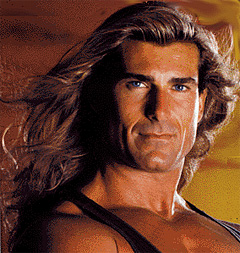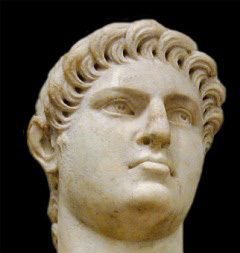
|  |  |  Editorials | Opinions Editorials | Opinions  
Capilli Vanitas
 Ron Biggs - PVNN Ron Biggs - PVNN
December 02, 2010

I had not experienced a Mexican summer with long hair before moving down here. My first summer taught me about the drawbacks of having long, very fine hairs (as in delicate, thin strands). The combination of a breeze and sweat provoked an incessant reaction based in a phobia of walking face-first through spider webs. I donít like spider webs, and I donít like having to un-glue web-like filaments from my face. So, I cut off the hair.

I went several years with short, spiky hair, and now Iím back to growing it out. Once again, Iím getting feedback on how well it suits me. Of course, this initial round of feedback stems from the stark difference in aspect, pre- and post- hair.

Yesterday for instance, I ran into a girlfriend who I hadnít seen in a really long while, and she made quite a positive fuss over the hair. That made me resolve that the inconveniences of coiffing the thatch has value in how it affects the sensibilities of others, which in turn affects my own sensibilities about self.

As we parted ways, me to the bathroom (where I do my best thinking) and she to her spot on the beach, I thought: "Hoy-day, what a sweep of vanity comes this way!" I immediately started to wonder why I was bothering at all and why I rationalized that, since others have to look at me more than I do, I should cater to the preponderance of opinion (for some reason).

Capilli vanitas vanitas censure (hair is vanity, vanity is value)

 It seems that many things we do, we do to make ourselves "presentable" in society, including bathing, dressing nice, wearing jewelry, combing our hair, brushing our teeth, and so forth. We justify many of those things as hygienically necessary, but even good hygiene presupposes concern for the well-being of self. It seems that many things we do, we do to make ourselves "presentable" in society, including bathing, dressing nice, wearing jewelry, combing our hair, brushing our teeth, and so forth. We justify many of those things as hygienically necessary, but even good hygiene presupposes concern for the well-being of self.

Beyond hygiene, I would argue that that the things we do are more about image-building: image of our self & the image of our self in the eyes of others. And we take pride in that accomplishment or in the endowments we possess (by accident of birth, rigorous exercise, amazing paint, or good invasive surgeries).

I suspect that the motivation for this is valuation: imagining or ascribing some value to appearance in the eyes of society, whether the point is blending in or standing out, belonging or rejecting, approbation or ostracism, admiration or contempt. In any form, it is something we want associated to us, forming our identity ó the thing we take the most pride in.

Vanitas vanitatum omnia vanitas

 According to dictionary definitions, vanity is the excessive pride in what one thinks he possesses, including appearance. But pride by itself is more associated with a measure of satisfaction whereas vanity is almost exclusively a concern with self-image as it pertains to the self possessions. According to dictionary definitions, vanity is the excessive pride in what one thinks he possesses, including appearance. But pride by itself is more associated with a measure of satisfaction whereas vanity is almost exclusively a concern with self-image as it pertains to the self possessions.

So you can have pride of self-image which turns to preoccupation or over-reliance on how you look according to the standards of the time or some social circle.

Thereís also a flip side to what we normally think of a vanity. A preacher I was listening to one time made the point during a sermon that Pride has two sides: Look at me (all eyes) because Iím great; and Donít look at me (all eyes) because Iím wretched. At each end of this spectrum, the concern is for the focus on self.

In the context of vanity, you can have anti-vanity (like anti-matter), which would be that flip-side version, as with pride. One is tempted to think of anti-vanity as merely acknowledgment of a deficit of attributes ("I'm not pretty.") or excess humility, but in fact, this type of vanity is, indeed, made up of matter, but more like the contrary of regular vanity. The matter of anti-vanity lies in the negative thought forms ("I am ugly."), rather than the "positive" thought forms of vanitas ordinarius ("I'm stunning.")

Vain comes from Latin for "emptiness," which is one of our definitions of vanity: lacking real value, hollowness, worthlessness, trivial, pointless. This vanity, when used in the Ecclesiastical sense, refers to the meaninglessness, or emptiness, of the transient things onto which we place our concerns and value.

This is a particularly illuminating point because throughout time & in different cultures, the criteria used to judge "value" have changed while the underlying motivation for valuing has not. After all, what makes something valuable?

For things in general, it is what others want or prize highly. To the human ego, that translates to the sense of being valued, wanted, and appreciated. And we measure our progress of attaining these states by the reactions of others who hold the same values (and in whose society we wish to be part).

A twist on vanity that could be mistaken for anti-vanity is one that is the opposite of prideful of oneís positive attributes or identity ó it is being prideful of oneís negative attributes being construed favorably. I cannot tell you how many people I know who glory in their peccadillos or less-polished aspects because it is "who I am." The value here is in feeling that one is unique.

Vanity, it would seem, is a human condition relative to association with other humans and the resulting economic and social interactions.

Coloring Outside the Lines

How do you identify that line where presentable vanity ends and narcissism begins?

Mark Twain said, "There are no grades of vanity, there are only grades of ability in concealing it." I would add that there is a 1:1 inverse proportion between the decrease in ability and the rise in pathology.

Freud thought that all of us are born with narcissism, which allows us to balance realistic self-interest & social interaction and to develop skill sets in evaluating our adequacies (self esteem, competence, likability, appropriateness, etc.) and other self knowledge. Thatís called "healthy narcissism."

Unhealthy, of course, would be overestimation of oneís abilities and having an excessive need for admiration and affirmation, which leads to a healthy-sized list of the "seven deadly sins of narcissism." Those, according to trusty Wikipedia are: shamelessness, magical thinking (seeing oneís self as perfect), arrogance, envy, entitlement, exploitation, and bad boundaries.

So, if itís present in everyone, whatís the big deal? Well, for one, there are the accusations of being vain or narcissistic. But maybe thatís a wakeup call for those not too far gone to course-correct. Or maybe itís a petty accusation of people you donít need or want in your circle anyway. Thatís where your valuation system comes in handy.

Iím wondering if I should care. Itís almost as if youíre damned if you do and damned if you donít. But letís go with the higher grade of vanity concealment and say: I will do the minimum in the form that best pleases the majority within the circles I travel. I will be "presentable" on the apparently more favored side.

"The only cure for vanity is laughter, and the only fault that is laughable is vanity."
Henri Bergson

 Ron Biggs likes to talk, and he likes to cogitate. Doesn't matter about what. His writing is dense and not conducive light nighttime reading. His aim is to incite or contribute to dialogue, the kind that short-circuits the synapses of those not so inclined toward exploring the "whys" of a perspective. He has a degree in and a passion for psycho-linguistics, to which apparently most any argument can be reduced. His blog site is TalkingOnTheThink.wordpress.com. Ron Biggs likes to talk, and he likes to cogitate. Doesn't matter about what. His writing is dense and not conducive light nighttime reading. His aim is to incite or contribute to dialogue, the kind that short-circuits the synapses of those not so inclined toward exploring the "whys" of a perspective. He has a degree in and a passion for psycho-linguistics, to which apparently most any argument can be reduced. His blog site is TalkingOnTheThink.wordpress.com.

Click HERE to read more articles by Ron Biggs on PVWriters.com. |

 |
|  |



